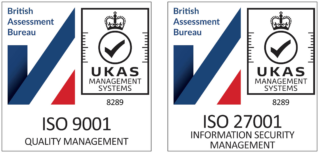Making ID checks for compliance in Umbrella companies

According to analysis, the number of self-employed workers in the UK has increased by 12 per cent since 2000. As a result, hundreds of thousands of workers now use umbrella companies to act as their employer, dealing with their payroll, taxation and invoice administration, either through referral by a recruitment agency or directly. As the employer, the umbrella company needs to check the ID and Right to Work of every one of these contractors. So how can an umbrella organisation run identity checks efficiently and consistently to ensure they comply with current legislation?

For an umbrella organisation, like any other, making a Right to Work check starts with validating an applicant’s passport and any other necessary documentation, such as a visa, to confirm whether they have the right to work in the UK.
But unlike many other organisations, umbrella companies don’t always get to see a candidate during an initial face-to-face interview. They often initially see scanned copies of identity documents, shared remotely, either by applicants or by the recruitment agencies who are referring the candidates. And this makes checking that someone is who they say they are even more difficult. However, checking a candidate’s Right to Work is crucial and an umbrella company needs to take full responsibility for the screening process.
If an employer has ‘reasonable cause to believe’ that the person is an illegal worker and fails to determine their right to work, this can lead to penalties for the company of up to £20,000.
Therefore, an umbrella company needs to be sure about who they are paying and shouldn’t simply trust that a referring recruitment business is verifying identity or even that a contractor has validated their own!
We’re seeing more and more ID scanning customers in the payroll and umbrella services sector. These customers conduct high volumes of checks, using an automated process which lets them upload a scanned copy of an applicant’s ID document onto our online validation service. Our service then confirms its legitimacy through optical character recognition and checking whether it has been recorded as compromised or involved in crime. We then send back a report, date and time stamped, showing which checks have been made, to support the statutory excuse. For full legal compliance, the original passport or identity document can then be seen when an applicant starts, and their face checked against the photo on the document.
In 2020, the percentage of fake IDs presented to Umbrella and Screening companies doubled – from 10.3% to 20.6%. Those fake documents included passports, Biometric Residence Permits, ID cards and visas from different countries across Europe and beyond.
Keeping a high level of compliance may feel like a complex challenge for umbrella companies who have a high turnover of applicants; identifying those fraudulent documents by eye alone, particularly on a copied document, would be a near-impossible task. But it’s nevertheless crucial for these businesses to protect themselves.
We spoke to one umbrella services business, i-paye, who recently streamlined their ID checks with TrustID Cloud. They were looking for an easy way to protect themselves and their agency partners from illegal workers and demonstrate the highest levels of compliance. The TrustID Cloud service has helped them do just that! Read their story here.
How does an umbrella business use ID checks?
Find out how one Umbrella Service provider use TrustID checks to quickly and easily confirm the authenticity of identity documents from each contractor as part of Right to Work checks.
Sign up to receive updates
Receive notifications from TrustID direct to your inbox. Simply fill out your email address in the form below.
Want to find out more?
We’d be really happy to chat through your requirements and offer advice on the best service for your business.
Tel: 0118 466 0822 or email us.
Request a callback


